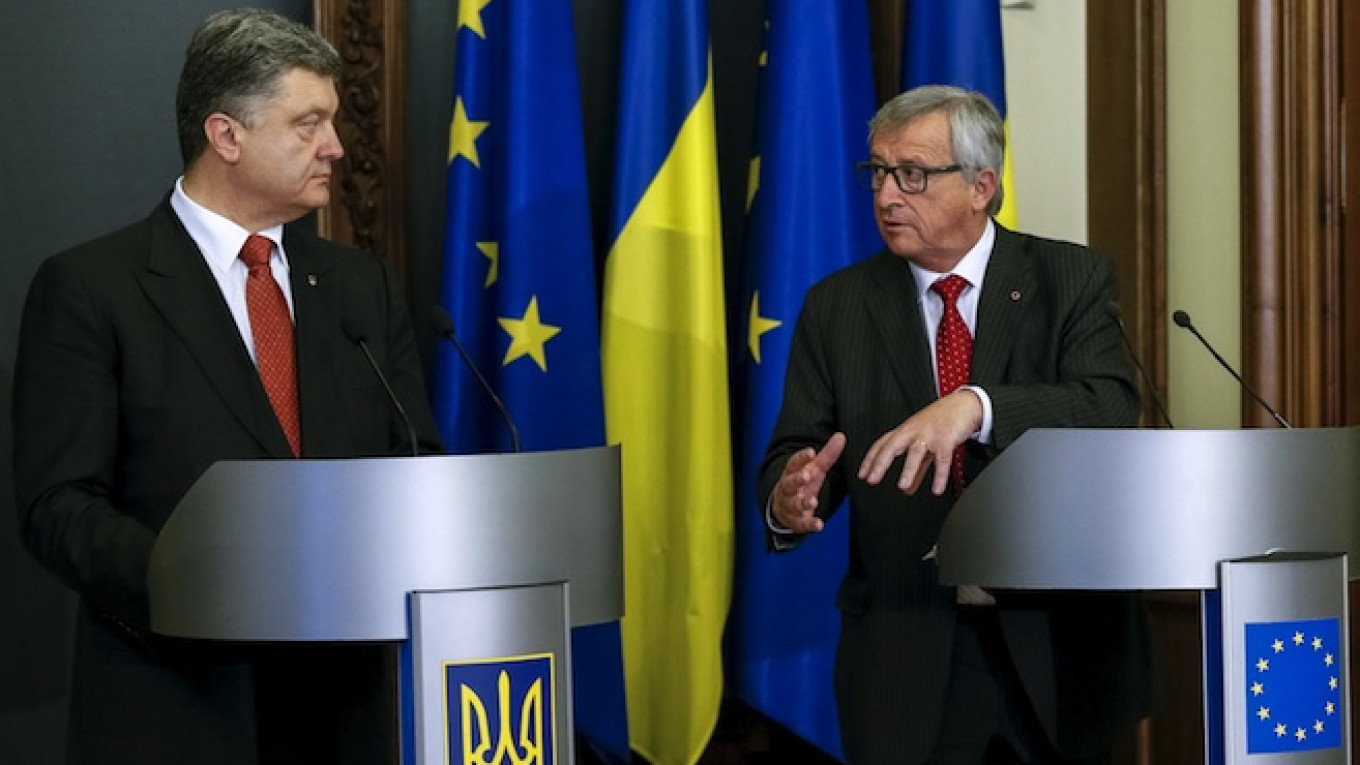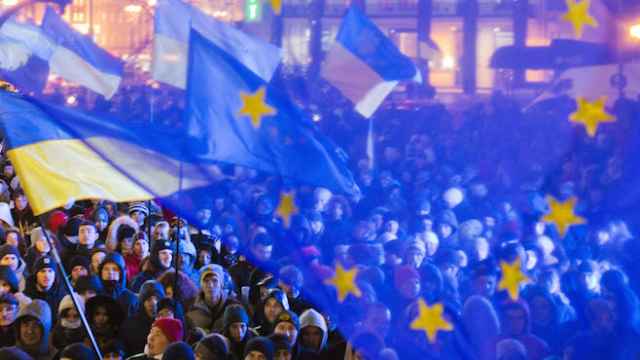Ukraine's foreign minister said his country wants assurances at a summit with the European Union this week that it is a suitable candidate for EU membership and its citizens will gain visa-free travel to the bloc next year.
Officials from the EU and its member states meet six of the bloc's eastern neighbours, including Ukraine, in the Latvian capital Riga on Thursday and Friday, with a political solution to the conflict in Ukraine high on the agenda.
The EU has already agreed a free-trade pact with Ukraine, to be implemented from next year.
"Now we want concrete assurances in Riga that Ukraine is eligible for future membership of the European Union, and has the chance to become an accession candidate in the future," Foreign Minister Pavlo Klimkin told German daily Die Welt.
"We want to see light at the end of the tunnel," he said, adding that Ukraine also expected a commitment at the summit to visa-free travel to the EU from next year for its citizens.
Ukraine, Moldova, and Georgia signed political and trade agreements with the EU last year and want to join the bloc.
The Riga summit with those countries, as well as the more pro-Russian Armenia, Azerbaijan and Belarus, will try to further deepen ties.
A tug-of-war for influence between Brussels and the Kremlin, culminating in the Ukrainian conflict and Western sanctions against Moscow, has raised concern among some in the West about a new Cold War.
Russia describes last year's toppling of a pro-Russian president in Ukraine by mass protests and the country's turn away from Moscow towards the EU as a Western-backed coup. The loss of Ukraine was a blow to President Vladimir Putin's plans for a Eurasian Customs Union to parallel the EU.
Klimkin vowed Ukraine would implement "point for point" the Minsk agreement to ease conflict in the country.
A Message from The Moscow Times:
Dear readers,
We are facing unprecedented challenges. Russia's Prosecutor General's Office has designated The Moscow Times as an "undesirable" organization, criminalizing our work and putting our staff at risk of prosecution. This follows our earlier unjust labeling as a "foreign agent."
These actions are direct attempts to silence independent journalism in Russia. The authorities claim our work "discredits the decisions of the Russian leadership." We see things differently: we strive to provide accurate, unbiased reporting on Russia.
We, the journalists of The Moscow Times, refuse to be silenced. But to continue our work, we need your help.
Your support, no matter how small, makes a world of difference. If you can, please support us monthly starting from just $2. It's quick to set up, and every contribution makes a significant impact.
By supporting The Moscow Times, you're defending open, independent journalism in the face of repression. Thank you for standing with us.
Remind me later.






